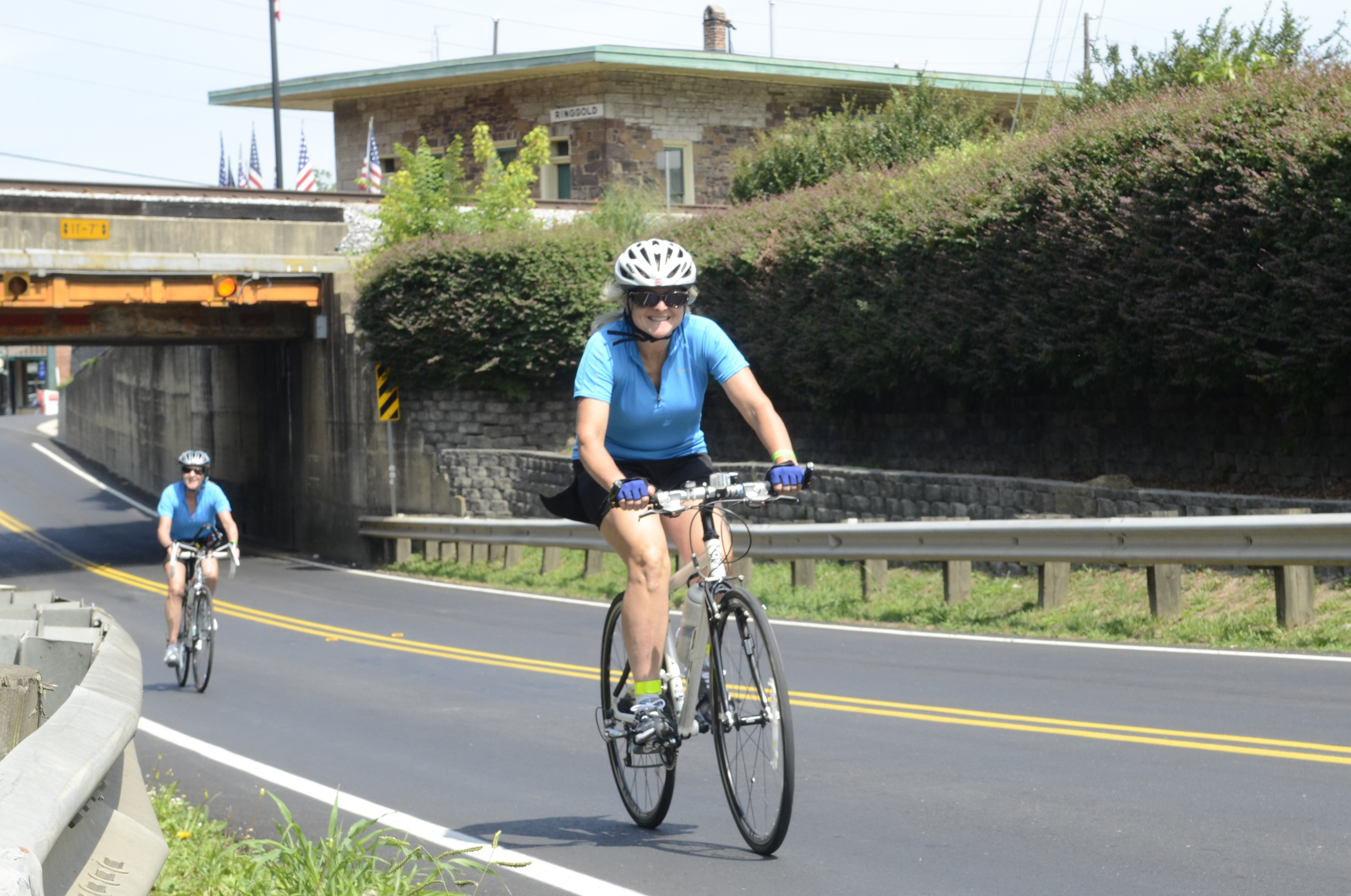A Georgia lawmaker wants to require that bicyclists in the state have to pay for a license and registration.
Carl Rogers, R-Gainesville, hosted a hearing on House Bill 689 in the Hall County Government Center on Monday night. Rogers said before the meeting that he wanted to bring experts together for a discussion about his proposal. Every element of the bill is open to debate, he said.
However, many cyclists in Georgia are against the proposal. They say the bill would restrict some people from access to roads, which should be open to everybody.
If Rogers' proposal passed as it now stands, a person would have to buy a license and an annual registration to ride a bike in Georgia. The registration would cost $15 a year. A rider also could pay $48 for a registration that would be good as long as she owns that particular bike.
The bill contains three other key changes. It restricts how a group of cyclists can ride, the number of cyclists allowed in that group, and whether any cyclists can use certain roads at all.
Rogers said he proposed the bill in March because several residents in his community called to complain about people riding bikes in Hall County. Lee Hawkins and Emory Dunahoo, two other Gainesville-based representatives, have co-sponsored the bill.
"A lot of people -- I call them the silent majority -- have been complaining to me about the cyclists abusing their privileges on the road," Rogers said. "I hear it and I hear it. Folks say, 'Representative Rogers: When are you going to do something about it?'"
Rogers believes cyclists need licenses and registrations to ride on the roads because car drivers have to pay to use the same space. But that is a flawed concept, said Brent Buice, the executive director of Georgia Bikes.
Drivers don't pay such costs for access to the roads, he said. The roads are public.
"We tax, tag and require licenses for motor vehicles because they are inherently dangerous," he said.
In other words, you as a driver are paying for the right to operate a vehicle that can cause a life-changing injury. Also, Buice said, driving a car or truck demands money because these vehicles lead to other expenses such as pollution and road wear.
Rogers' bill also proposes that cyclists ride in a single-file line. Right now, a pair of riders can ride side-by-side down a road. Rogers says this means car drivers must go farther into the opposite lane when they try to pass the bicycles.
But no matter what, Buice argues, whether riders are in a line or side by side, the driver will have to steer into the oncoming lane, at least a little bit. What's the difference how far into that lane they go? And, when riders are side by side, he said, those riders have an easier time communicating with each other, and that's important when you're on a vehicle that is vulnerable to bumps or potholes in the road.
Also, according to Rogers' bill, cyclists could never ride in a group larger than four people. But Buice argues that, the larger the group, the less exposed cyclists are, and the safer they are.
The bill includes one other element: Government authorities would have the right to regulate when cyclists can use different roads, or whether they can use them at all. If the road is a state highway, the Georgia Department of Transportation would regulate it. Otherwise, local governments would be in charge of a road's use.
 Two cyclists travel eastbound on U.S. Highway 41 past the historic Ringgold Depot in this file photograph. A Gainesville, Ga., state lawmaker hosted a hearing Monday night on a House bill that would add new regulations on cyclists. Most notably, the law would require cyclists to buy a license and registration for each of their bikes. Also, the law would limit how cyclists ride in groups, how many cyclists can be in one group, and whether certain roads are open to bicycles at all. Cyclists in the state argue that this bill denies a certain group access to public property and misunderstands why we have licenses and registrations for our car.
Two cyclists travel eastbound on U.S. Highway 41 past the historic Ringgold Depot in this file photograph. A Gainesville, Ga., state lawmaker hosted a hearing Monday night on a House bill that would add new regulations on cyclists. Most notably, the law would require cyclists to buy a license and registration for each of their bikes. Also, the law would limit how cyclists ride in groups, how many cyclists can be in one group, and whether certain roads are open to bicycles at all. Cyclists in the state argue that this bill denies a certain group access to public property and misunderstands why we have licenses and registrations for our car.Government officials could decide what times you can ride your bike on a road they think is dangerous. Or, they could reject your use of the road entirely.
"Everything is wrong with that," Buice said. "That is fundamentally opposed to allowing people basic access to part of your community. That's a complete nonstarter. How can you say someone doesn't have a right to access to roads?"
Contact staff writer Tyler Jett at 423-757-6476 or tjett@timesfreepress.com.
